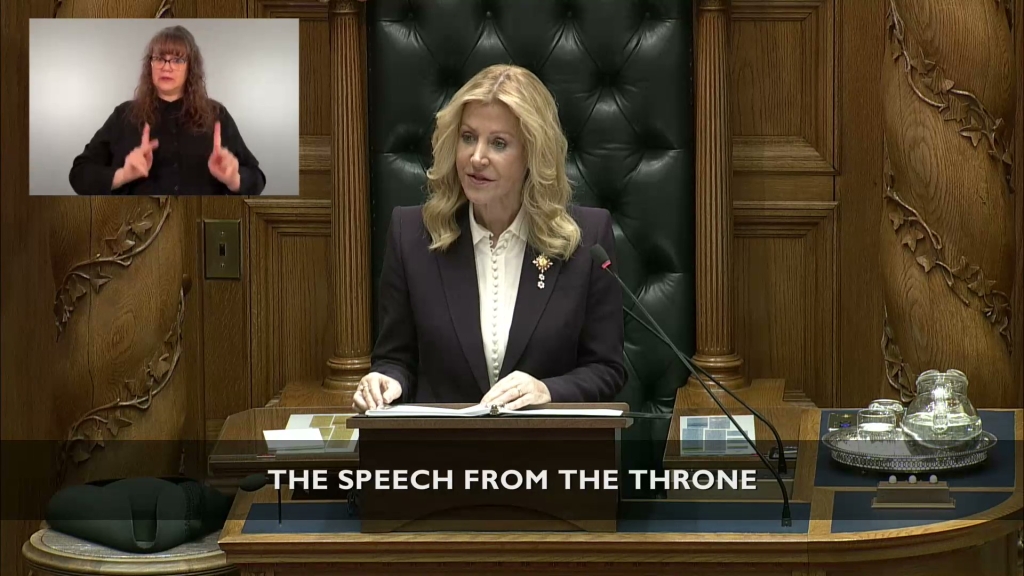Each new session of the Legislative Assembly of British Columbia is formally opened with the reading of the Speech from the Throne. The speech is written by the government of the day to explain why the Legislative Assembly is being assembled and to outline the government's goals for the coming legislative session.
Canada's parliamentary system of government is based on the United Kingdom's Westminster system, where the monarch or a representative of the Crown has been opening Parliament since the early 16th century. This tradition is continued today in B.C.'s Legislative Assembly by the Lieutenant Governor, the representative of the King of Canada in British Columbia, who reads the Speech from the Throne to open a new session.
The throne speech debate is formally known as the Address in Reply to the Speech from the Throne. This debate is initiated by a government motion "to offer humble thanks…for the gracious speech...". Once moved, a wide ranging debate ensues for up to six days, covering government priorities and plans. Opposition Members may take this opportunity to propose amendments critical of the priorities outlined by the government in the throne speech. The vote on whether to adopt such an amendment is very important, as it displays the Legislative Assembly's support for the government. If a government loses the vote, they are said to have lost the confidence of the Legislative Assembly and, by tradition, must resign.
Wishing to avoid this confidence vote, a government may not want to debate the Address in Reply for all six sitting days allocated to it. Instead, the Government House Leader may choose to leave the Address in Reply on the Orders of the Day and instead call other items for debate. If there are enough items for the government to call, it can effectively postpone this vote of confidence for the rest of the session.

